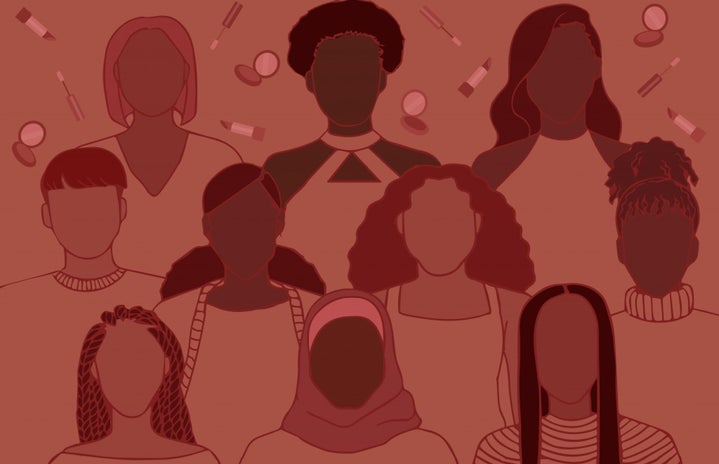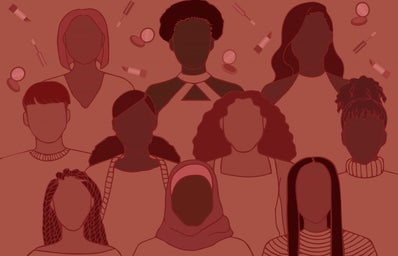I am a feminist. In a society that says ideological divisions should be the end of our friendship, I sat down with a fellow Her Campus contributor, Miranda, from Siena College to have an open discussion and see what we can learn from each other. Why? We wanted to work together as women to understand one another. We have been close friends since we met almost a year ago during a semester abroad in Valencia, Spain, and if you can’t have controversial and slightly uncomfortable conversations with friends, how can you expect to have them with anyone else?
A little context to our conversation. I am a straight, white, 20-year-old moderate from Kentucky, and I am a feminist. Miranda is a straight, Latina, 21-year-old moderate republican from New York, and she is not a feminist. Neither of us intend to generalize our views to the entire female population, and we based our discussion off of our unique personal experiences.
First of all, what is feminism? Society, social media, politics, legislation, business, education, finances, relationships, gender roles, and lifestyles have attached themselves to feminism in various ways, with either positive or negative connotations that often blur the true essence of feminism. At its core, feminism is the economic and social equality between the genders, or the advocacy of that equality. Sounds simple enough, and most people will agree that gender equality is a good and fair thing. Where the real trouble lies is the way in which feminism manifests itself in our day to day lives.
A lot of people associate feminism with its presence in politics and law, such as the right to choose and the availability of birth control, the wage gap, and the defiance of mainstream, patriarchal culture. This is something we could both agree on, even though Miranda is not a feminist. Neither of us want to be paid less for the same job and the same work. We both support reproductive rights for all women. We want to see the spread of gender equality throughout the entire world, especially in areas where women still lack basic liberties. In that sense, we share basic feminist values outside of the label.
The first thing we realized is that our other identities, such as race and geographic backgrounds, can strongly influence our views on feminism. Miranda pointed out that a greater social and economic disparity exists for women of color, and feels that more of her white friends are feminists than her friends of color, including herself, because they feel like white women face less obstacles. In her opinion, feminism serves women who have already overcome certain social obstacles that many women of color are still struggling with. I had never considered this before.
Personal experience also plays a significant role. Miranda explained a few reasons she has not labled herself as a feminist. She feels that some people use it as an excuse for aggression and toxic behavior. “Why do we just have one definition of a woman?” she asked me. Why does a woman have to be certain things or hold certain views to be considered “right”? She shared a few personal experiences that made her feel this way, including feminists who have put her down based on her opinions, political views, and choices. She has been called a “disgrace to womankind” by a woman claiming to help her with relationship advice. She feels that our culture has bred a mistrust among women, breeding radical feminism, man bashing, disloyalty, and judgement, and it all comes back to the way we as women treat each other.
My experiences have been very different. I have been blessed with many positive, supportive female friendships and role models that have shaped me into the woman I am today. Not to say I haven’t had similar toxic experiences. Unfortunately, most women have, but my feminist friendships have helped me, not hurt me. In my eyes, feminism means building women up, not tearing them down, even if I disagree with their lifestyles or opinions. I choose to identify as a feminist because I believe that feminism should empower women to be their best selves and should advocate for the rights and opportunities to live as they want to, not as society dictates that they do. I want equal opportunity, pay, and rights as my male counterparts. I don’t want to be held to a different standard than men or be judged unfairly because of my gender. I hate being demeaned by the mechanic who assumes I don’t know why I need my oil changed or dismissed by male professors. We have made so much progress socially and economically, but there are still microaggressions and disparities that females face that I hope to rectify. None of my experiences negate what Miranda has been through; in fact, I think that the women who have made her feel less than or “wrong” are the complete opposite of what a “good feminist” is and should be.
In the end, we came to the conclusion that the label of “feminist” or “not a feminist” isn’t as important as the way we treat each other. Trying to force your views on others with anger and Facebook rants will never work. We need to find a way to reach people who are different from us through honesty and respect, which is easier said than done in our increasingly divided culture. So what now? Now we come together as women, be kind to one other, and live your own truth while respecting that of others. We need to set an example for all women in the way we act toward each other, the way we speak to each other, and the way we speak about each other. Turning against other women gives men an unofficial excuse to perpetuate sexism and misogyny in our country. How can we expect men to treat us as equals when we can’t even do that amongst ourselves? Although Miranda and I found a lot of commonalities between our perspectives, we disagreed at the end of the day, and that is okay. Real queens fix each other’s crowns. They don’t knock them off. If you are not a feminist, still find a way to support other humans and promote equity in your own way. If you are a feminist, make sure you acknowledge the many types of women that exist and respect the way they choose to express themselves.
I’ll close with a quote from one of my all-time favorite feminists, comedian Iliza Shlesinger. “One woman’s affirmation of her life choices is not the negation of your existence. Be better than that.”



